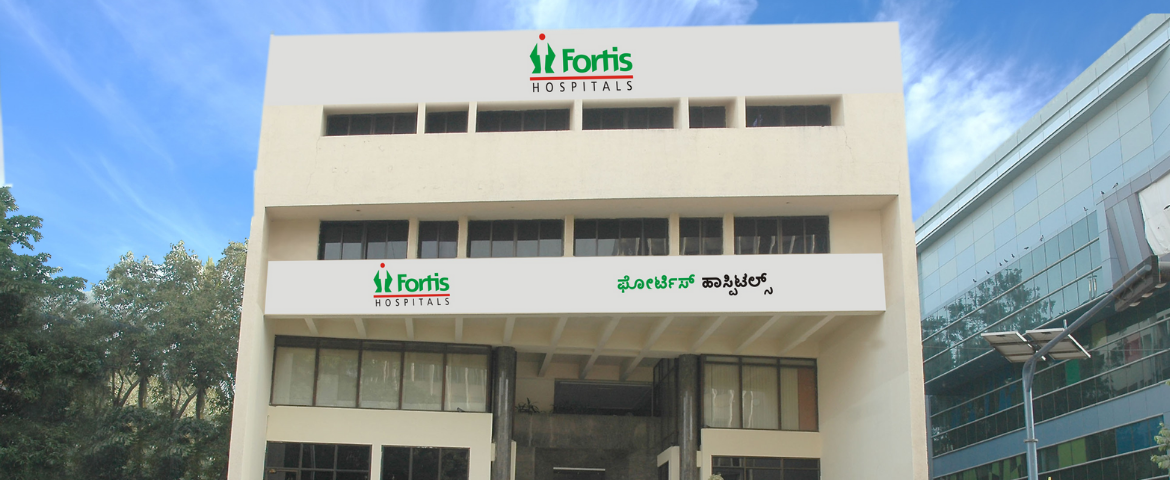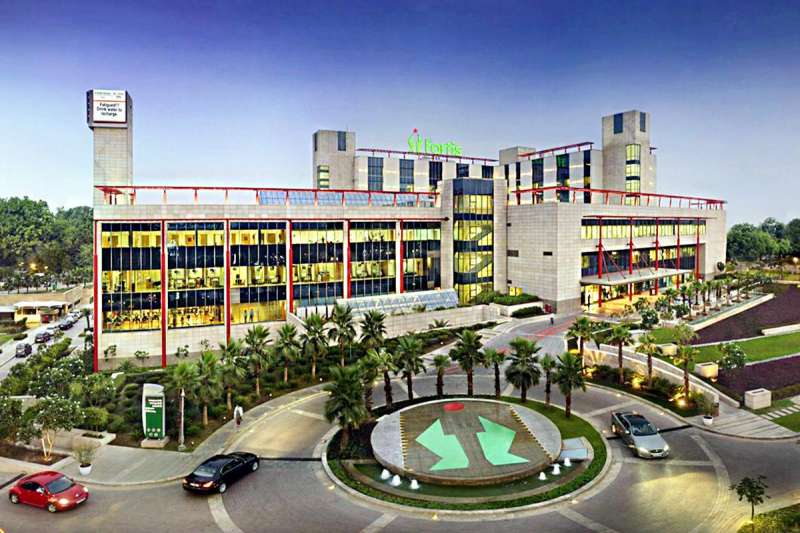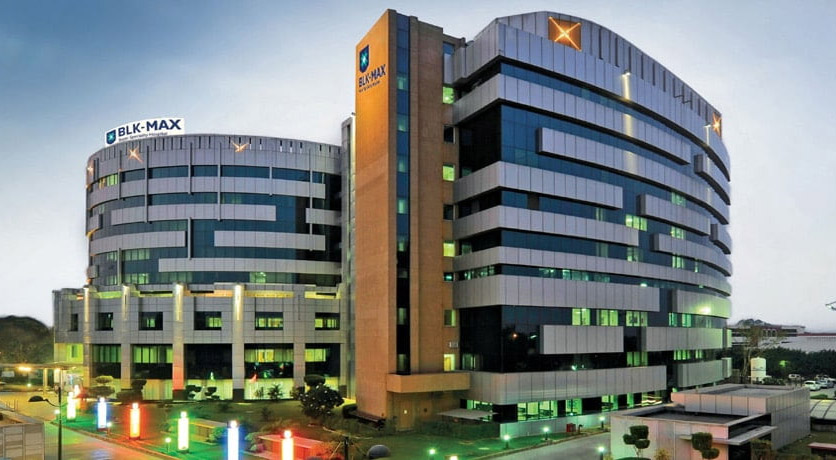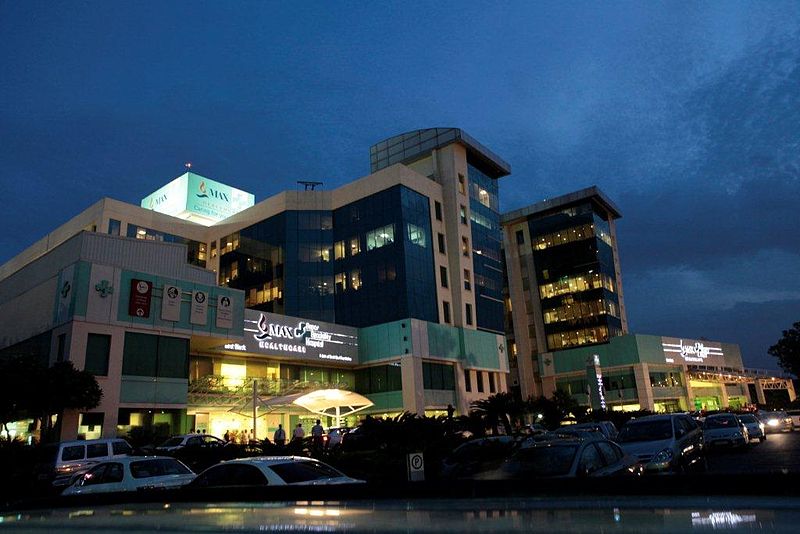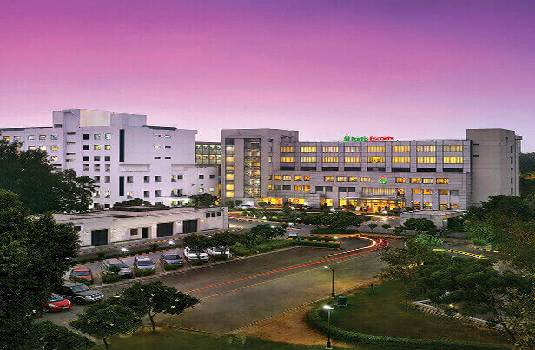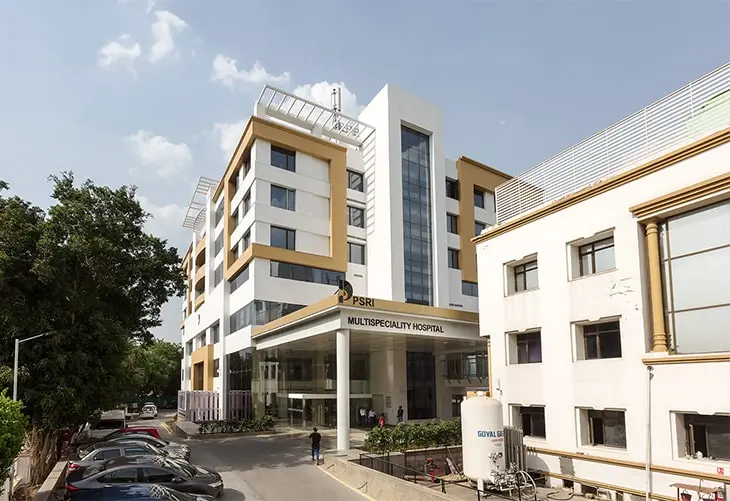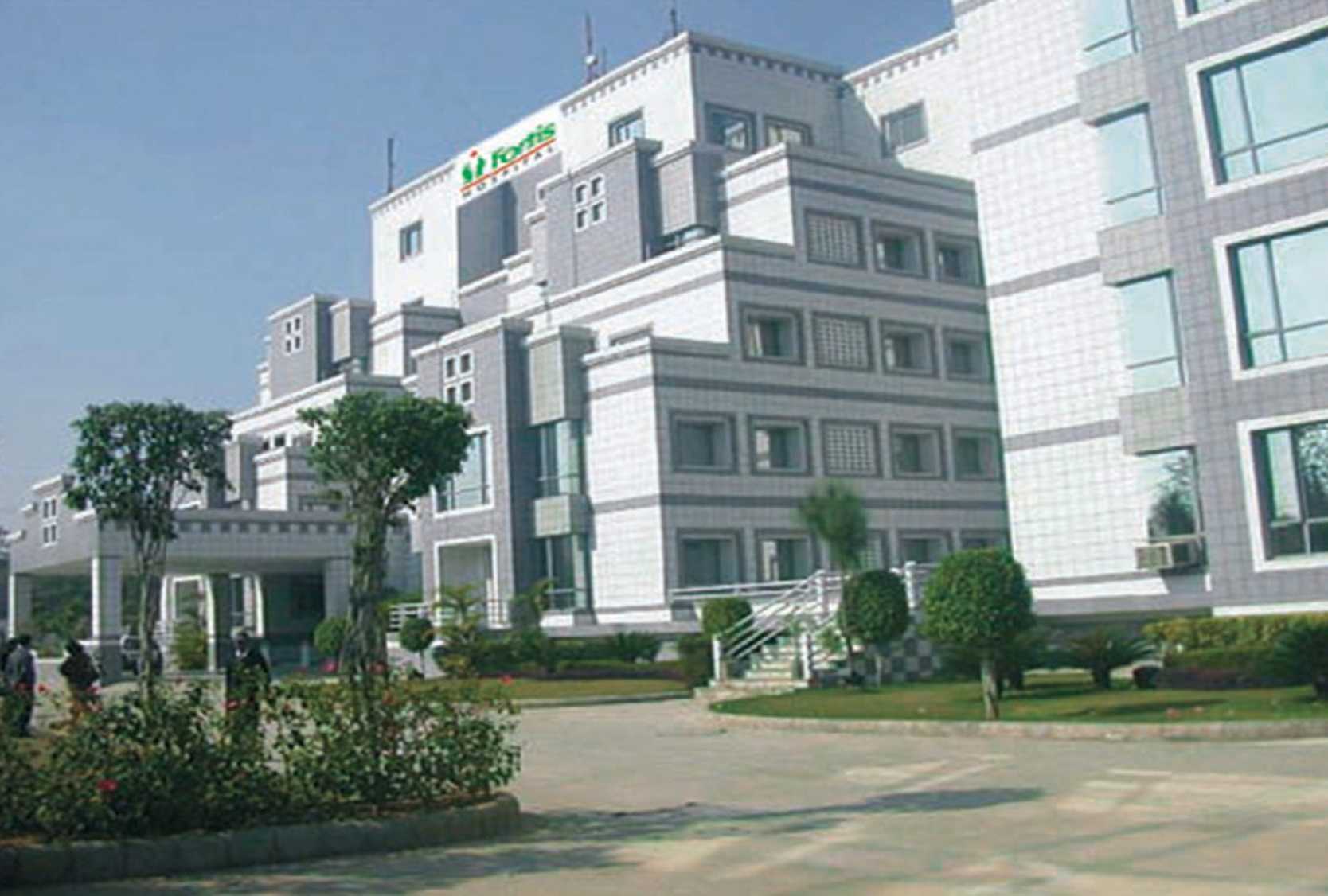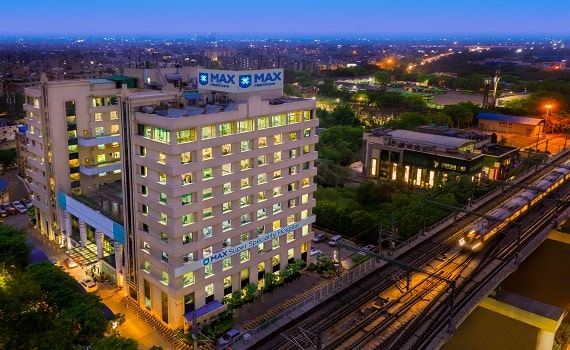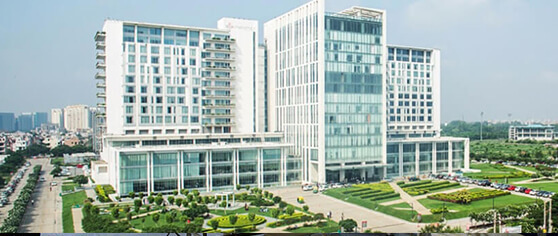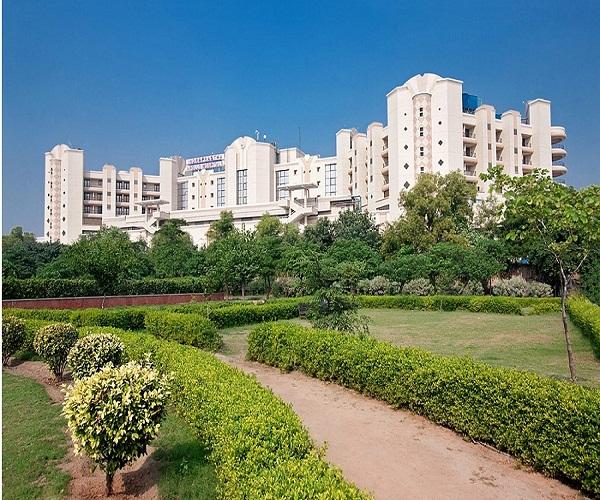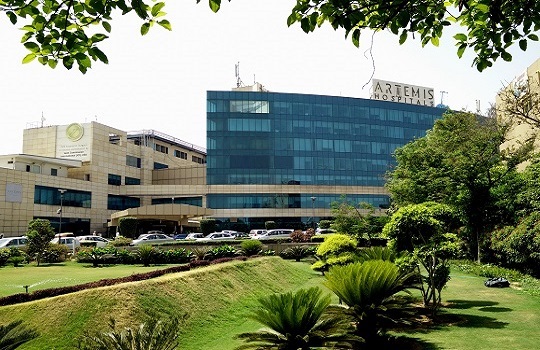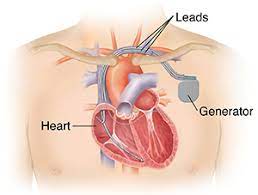Pacemaker Procedure Biventricular cost in India
The cost of Pacemaker Procedure Biventricular in
India ranges from USD 13500 to USD 24500
Pacemaker Procedure Biventricular
Cardiac resynchronization therapy (CRT) is a kind of heart failure treatment that involves a biventricular pacemaker. This pacemaker provides electrical pulses to the ventricles at the same moment, causing them to pump at the same time. In the chest, a biventricular pacemaker is implanted, which is connected to three small cables known as leads. The leads are inserted into several chambers of your heart. If your heartbeat is irregular, the pacemaker transmits a non-painful signal through the leads to correct the problem. If your heart is beating too slowly, the pacemaker can speed it up.
Pacemaker Procedure Biventricular
Cardiac resynchronization therapy (CRT) is a kind of heart failure treatment that involves a biventricular pacemaker. This pacemaker provides electrical pulses to the ventricles at the same moment, causing them to pump at the same time. In the chest, a biventricular pacemaker is implanted, which is connected to three small cables known as leads. The leads are inserted into several chambers of your heart. If your heartbeat is irregular, the pacemaker transmits a non-painful signal through the leads to correct the problem. If your heart is beating too slowly, the pacemaker can speed it up.
In some cases, you may get a pacemaker that is combined with a device to shock your heartbeat back to a normal rhythm if it is dangerously fast. The device is called an implantable cardioverter-defibrillator, or ICD. It can prevent sudden death.
If your heartbeat is dangerously rapid, you may need a pacemaker linked with a device that shocks it back to a regular rhythm. An implanted cardioverter-defibrillator, or ICD, is the name for the device. It has the potential to avert abrupt death.
During minor surgery, your doctor will implant a pacemaker in your chest. A tiny cut (incision) is made in your chest by your doctor. The doctor inserts the leads into a vein and into the heart. The leads are then connected to the pacemaker by your doctor. The pacemaker is implanted in your chest and the wound is closed by your doctor. The pacemaker is also programmed by your doctor.
Disease Overview
Heart failure
When the heart muscle doesn't pump blood as well as it should, it causes heart failure, also known as congestive heart failure. When this happens, blood can back up in the lungs and fluid can build up, causing shortness of breath.
Certain cardiac disorders, such as restricted arteries in the heart (coronary artery disease) or high blood pressure, cause the heart to weaken or stiffen over time, making it unable to effectively fill and pump blood.
Signs and Symptoms:
Heart failure can be long-term (chronic) or develop quickly (acute).
The following are some of the indications and symptoms of heart failure:
- When you are active or lying down, you may have shortness of breath.
- Weakness and exhaustion
- Legs, ankles, and feet are swollen.
- Heartbeats that are fast or irregular
- Exercise ability is hampered.
- Coughing or wheezing that is persistent, with white or pink blood-tinged mucous
- Swelling of the abdomen (abdomen)
- Fluid retention causes fast weight gain.
- Nausea and an inability to eat
- Concentration problems or a lack of attentiveness
- Chest pain if heart failure is triggered by a heart attack
Disease Causes:
Any of the illnesses listed below can harm or weaken your heart, resulting in heart failure. Some of these may be present even if you aren't aware of it:
Coronary artery disease: It is the most frequent type of heart disease and the leading cause of heart failure.The illness is caused by fatty deposits forming in the arteries, which decrease blood flow and can result in a heart attack.
High Blood Pressure: Your heart has to work harder than it should to pump blood throughout your body if your blood pressure is high. This increased exertion might cause your heart muscle to become too stiff or weak to effectively pump blood over time.
Faulty Heart Valves: The heart's valves keep blood flowing in the right direction. A weakened heart is caused by a damaged valve, which can be caused by a heart defect, coronary artery disease, or a heart infection.
Damage to the heart muscle: Heart muscle damage can have many causes, including certain diseases, infection, heavy alcohol use, and the toxic effect of drugs, such as cocaine or some drugs used for chemotherapy. Genetic factors also can play a role.
Myocarditis: virus such as the COVID-19 virus, is the most prevalent cause of myocarditis, which can result in left-sided heart failure.
Arrhythmias: Abnormal cardiac rhythms can cause your heart to beat excessively quickly, putting additional strain on it. Heart failure can also be caused by a sluggish heartbeat.
Diagnosis:
Your doctor will take a thorough medical history, assess your symptoms, and do a physical examination to diagnose heart failure. Your doctor will also look for heart failure risk factors such as high blood pressure, coronary artery disease, or diabetes.
Your doctor can listen to your lungs for symptoms of fluid accumulation (lung congestion) and your heart for murmurs (whooshing noises) that might indicate heart failure. Your veins in your neck may be examined, and fluid accumulation in your belly and legs may be checked.
Following the physical examination, your doctor may prescribe some of the following tests.
Blood test: Blood tests are used to screen for indicators of heart disease.
Echocardiogram: An echocardiography is a type of ultrasonography of the heart. Sound waves are employed to produce moving images of the heart. An echocardiography allows doctors to examine the aortic valve and aorta in greater detail. It can assist in determining the source of aortic valve disease as well as the severity of the condition.
Electrocardiogram (ECG or EKG): The electrical activity of the heart is recorded in this noninvasive examination.
Chest X-ray: It can provide information about the heart and lungs' health.
Cardiac MRI: It creates precise pictures of the heart using magnetic fields and radio waves.
Cardiac computerized tomography (CT) scan: In this, Series of X-rays are used to obtain detailed pictures of the heart and heart valves. This imaging approach may be used by doctors to determine the size of the aorta and examine the aortic valve in greater detail.
Coronary Angiogram: This test involves inserting a thin, flexible tube (catheter) into a blood artery, commonly in the groyne, and guiding it to the heart arteries. A dye (contrast) is administered into the catheter to assist the doctor locate blockages by making the arteries appear more clearly on an X-ray
Myocardial biopsy: A doctor inserts a thin, flexible cable into a vein in the neck or groyne and takes extremely small sections of the heart muscle for inspection during this procedure. This test may be used to diagnose heart failure caused by certain types of heart muscle diseases.
Disease Treatment:
Heart failure is a chronic condition that requires ongoing care. Heart failure symptoms and indicators can improve with medication, and the heart can occasionally get stronger.
Doctors can occasionally address the underlying cause of heart failure. Heart failure can be reversed by mending a heart valve or managing a rapid heart beat, for example. However, for the majority of patients, heart failure therapy is a combination of the correct drugs and, in some cases, the use of devices that help the heart pulse and contract effectively.
Medication: Heart failure is generally treated with a mix of drugs. You could take one or more drugs, depending on your symptoms, such as: ACE inhibitors, receptor blockers, Beta blockers, Diuretics etc.
To cure the underlying condition that caused heart failure, surgery or other treatments to implant cardiac devices may be advised. The following surgeries or other treatments may be used to treat heart failure:
- Coronary bypass surgery
- Heart valve repair or replacement
- Implantable cardioverter-defibrillators (ICDs)
- Cardiac resynchronization therapy (CRT)
- Ventricular assist devices (VADs)
- Heart transplant
Country wise cost comparison for Pacemaker Procedure Biventricular:
| Country | Cost |
|---|---|
| India | $13950 |
Treatment and Cost
7
Total Days
In Country
- 2 Day in Hospital
- 2 No. Travelers
- 5 Days Outside Hospital
Treatment cost starts from
$15500
Popular Hospital & Clinic
Featured Hospital
101 Hospitals
Types of Pacemaker Procedure Biventricular in Fortis Memorial Research Institute and its associated cost
| Treatment Option | Approximate Cost Range (USD) |
|---|---|
| No Treatment option added | |
- Address: Sector - 44, Opp. HUDA City Center,Gurgaon, Haryana - 122002, India
- Facilities related to Fortis Memorial Research Institute: Private Rooms, Translator, Nursery / Nanny Services, Airport Pick up, Personal Assistance / Concierge, Free Wifi, Local Tourism Options, International Cuisine, Phone in Room, Private Driver / Limousine Services, Post operative followup, Mobility Accessible Rooms, Online Doctor Consultation, Air Ambulance, Religious Facilities, Rehabilitation, Cafe, TV in room, Car Hire, Health Insurance Coordination,
50
DOCTORS IN 35 SPECIALITIES
20+
FACILITIES & AMENITIES
Types of Pacemaker Procedure Biventricular in BLK-Max Super Speciality Hospital and its associated cost
| Treatment Option | Approximate Cost Range (USD) |
|---|---|
| No Treatment option added | |
- Address: Pusa Road, New Delhi-110005
- Facilities related to BLK-Max Super Speciality Hospital: Private Rooms, Translator, Nursery / Nanny Services, Personal Assistance / Concierge, Free Wifi, International Cuisine, Phone in Room, Private Driver / Limousine Services, Post operative follow-up, Mobility Accessible Rooms, Rehabilitation, Cafe, TV in room, Car Hire, Health Insurance Coordination
17
DOCTORS IN 33 SPECIALITIES
20+
FACILITIES & AMENITIES
Types of Pacemaker Procedure Biventricular in Max Super Speciality Hospital and its associated cost
| Treatment Option | Approximate Cost Range (USD) |
|---|---|
| No Treatment option added | |
- Address: Max Super Speciality Hospital No. 1, 2, Press Enclave Road, Mandir Marg, Saket Institutional Area, Saket, New Delhi, Delhi, 110017, India
- Facilities related to Max Super Speciality Hospital:
53
DOCTORS IN 34 SPECIALITIES
20+
FACILITIES & AMENITIES
Types of Pacemaker Procedure Biventricular in Fortis Escorts Heart Institute and its associated cost
| Treatment Option | Approximate Cost Range (USD) |
|---|---|
| No Treatment option added | |
- Address: Okhla Road,New Delhi - 110 025 (INDIA)
- Facilities related to Fortis Escorts Heart Institute: Private Rooms, Translator, Nursery / Nanny Services, Personal Assistance / Concierge, Free Wifi, International Cuisine, Phone in Room, Private Driver / Limousine Services, Post operative follow-up, Mobility Accessible Rooms, Rehabilitation, Cafe, TV in room, Car Hire, Health Insurance Coordination
20
DOCTORS IN 33 SPECIALITIES
20+
FACILITIES & AMENITIES
Types of Pacemaker Procedure Biventricular in PSRI Hospital and its associated cost
| Treatment Option | Approximate Cost Range (USD) |
|---|---|
| No Treatment option added | |
- Address: Press Enclave Marg, J Pocket, Phase II, Sheikh Sarai, New Delhi, Delhi 110017
- Facilities related to PSRI Hospital: Private Rooms, Translator, Nursery / Nanny Services, Personal Assistance / Concierge, Free Wifi, International Cuisine, Phone in Room, Private Driver / Limousine Services, Post operative follow-up, Mobility Accessible Rooms, Rehabilitation, Cafe, TV in room, Car Hire, Health Insurance Coordination
8
DOCTORS IN 33 SPECIALITIES
20+
FACILITIES & AMENITIES
Types of Pacemaker Procedure Biventricular in Fortis Flt. Lt. Rajan Dhall Hospital, Vasant Kunj, Delhi and its associated cost
| Treatment Option | Approximate Cost Range (USD) |
|---|---|
| No Treatment option added | |
- Address: Fortis Flt. Lt. Rajan Dhall Hospital, Aruna Asaf Ali Marg, Pocket 1, Sector B, Vasant Kunj, New Delhi, Delhi 110070
- Facilities related to Fortis Flt. Lt. Rajan Dhall Hospital, Vasant Kunj, Delhi: Private Rooms, Translator, Nursery / Nanny Services, Personal Assistance / Concierge, Free Wifi, International Cuisine, Phone in Room, Private Driver / Limousine Services, Post operative follow-up, Mobility Accessible Rooms, Rehabilitation, Cafe, TV in room, Car Hire, Health Insurance Coordination
46
DOCTORS IN 34 SPECIALITIES
20+
FACILITIES & AMENITIES
Types of Pacemaker Procedure Biventricular in MAX Super Speciality hospital, Patpadganj Delhi and its associated cost
| Treatment Option | Approximate Cost Range (USD) |
|---|---|
| No Treatment option added | |
- Address: 108A, Indraprasth Extension, Patpadganj, New Delhi- 110092, India
- Facilities related to MAX Super Speciality hospital, Patpadganj Delhi: Private Rooms, Translator, Nursery / Nanny Services, Personal Assistance / Concierge, Free Wifi, International Cuisine, Phone in Room, Private Driver / Limousine Services, Post operative follow-up, Mobility Accessible Rooms, Rehabilitation, Cafe, TV in room, Car Hire, Health Insurance Coordination
52
DOCTORS IN 33 SPECIALITIES
20+
FACILITIES & AMENITIES
Types of Pacemaker Procedure Biventricular in Medanta-The Medicity, Gurgaon and its associated cost
| Treatment Option | Approximate Cost Range (USD) |
|---|---|
| No Treatment option added | |
- Address: CH Baktawar Singh Road, Sector 38, Gurugram, Haryana 122001
- Facilities related to Medanta-The Medicity, Gurgaon: TV in room Private rooms, Free Wifi, Phone in Room, Mobility accessible rooms, Family accommodation, Laundry, Welcome Safe in the room, Nursery / Nanny services. Dry cleaning, Personal assistance / Concierge Religious facilities, Fitness Spa and wellness Café, Business Centre, Shop, Dedicated smoking areas, Beauty Salon, Special offer for group stays, Parking available, Health insurance coordination, Medical travel insurance, Foreign currency exchange, ATM, Credit Card, Debit Card, Net banking, Diet on Request, Restaurant, International Cuisine, Treatment Related Medical records transfer, Online doctor consultation, Rehabilitation, Pharmacy, Document legalization, Post operative follow-up, Language Interpreter, Translation services, Transportation, Airport pickup, Local tourism options, Local transportation booking, Visa / Travel office, Car Hire, Private driver / Limousine services, Air ambulance
52
DOCTORS IN 33 SPECIALITIES
20+
FACILITIES & AMENITIES
Types of Pacemaker Procedure Biventricular in Indraprastha Apollo Hospitals, New Delhi and its associated cost
| Treatment Option | Approximate Cost Range (USD) |
|---|---|
| No Treatment option added | |
- Address: Mathura Rd, Jasola Vihar, New Delhi, Delhi 110076
- Facilities related to Indraprastha Apollo Hospitals, New Delhi: Private Rooms, Translator, Nursery / Nanny Services, Personal Assistance / Concierge, Free Wifi, International Cuisine, Phone in Room, Private Driver / Limousine Services, Post operative follow-up, Mobility Accessible Rooms, Rehabilitation, Cafe, TV in room, Car Hire, Health Insurance Coordination
37
DOCTORS IN 33 SPECIALITIES
20+
FACILITIES & AMENITIES
Types of Pacemaker Procedure Biventricular in Artemis Hospitals and its associated cost
| Treatment Option | Approximate Cost Range (USD) |
|---|---|
| No Treatment option added | |
- Address: Sector 51, Gurugram 122001, Haryana, India
- Facilities related to Artemis Hospitals: Private Rooms, Translator, Nursery / Nanny Services, Personal Assistance / Concierge, Free Wifi, International Cuisine, Phone in Room, Private Driver / Limousine Services, Post operative follow-up, Mobility Accessible Rooms, Rehabilitation, Cafe, TV in room, Car Hire, Health Insurance Coordination
12
DOCTORS IN 11 SPECIALITIES
20+
FACILITIES & AMENITIES
Related Packages
More Related Information
Some of the top rated doctors are:
- India
Some of the top rated hospitals are:
- India
- Fortis Memorial Research Institute
- BLK-Max Super Speciality Hospital
- Medanta-The Medicity, Gurgaon
- Indraprastha Apollo Hospitals, New Delhi
- Artemis Hospitals
- Manipal Hospitals
- Nanavati Max Super Speciality Hospital, Mumbai
- Kokilaben Dhirubhai Ambani Hospital, Mumbai
- KIMS Hospital Kondapur, Hyderabad
- MIOT International, Chennai
- MGM Healthcare, Chennai

